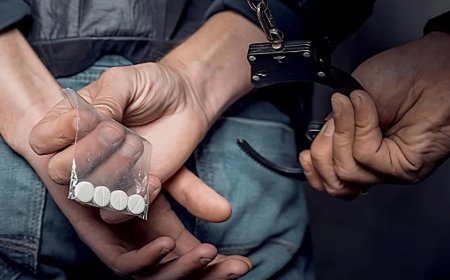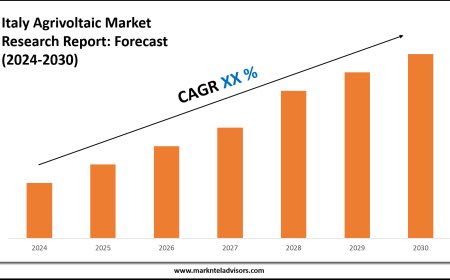Breaking Down to Build Up: The Rise of Biodegradable Products in the UK
As the UK races toward a more sustainable future, one of the most powerful shifts in both consumer behaviour and manufacturing strategy is the rise of biodegradable products. In an age where environmental consciousness influences everything from grocery shopping to packaging design, biodegradable Products alternatives have emerged as a promising solution to the nations growing waste and plastic pollution problems.
From compostable food packaging to biodegradable bin liners, the UK is witnessing a significant transformation across multiple sectors. But what exactly makes a product biodegradable, and how are British businesses and consumers responding to this green wave?
What Are Biodegradable Products?
Biodegradable products are items that can naturally break down into non-toxic components through the action of microorganisms, typically within a specific period. Unlike traditional plastics, which can persist for hundreds of years, biodegradable products decompose into water, carbon dioxide, and biomassideally leaving no trace.
The UK market includes a wide variety of biodegradable products, such as:
-
Food packaging (e.g. sandwich boxes, salad containers)
-
Cutlery and tableware made from cornstarch, bagasse (sugarcane pulp), or bamboo
-
Carrier bags made from biodegradable polymers
-
Cleaning products with plant-based ingredients and packaging
-
Personal care items, such as biodegradable wipes and bamboo toothbrushes
While the term "biodegradable" is widely used, it's important to note that not all biodegradable products are created equal. Some require industrial composting facilities to break down fully, while others decompose naturally in home compost bins or landfills.
Consumer Demand Driving Market Change
UK consumers have become more aware of their environmental impact, particularly following documentaries like Blue Planet II, which highlighted the devastating effects of plastic pollution. As a result, more people are looking for sustainable, biodegradable alternatives in their daily lives.
According to a 2024 survey by WRAP (Waste and Resources Action Programme), over 65% of UK consumers said they are willing to pay more for environmentally friendly packaging. This demand has prompted major retailers and manufacturers to adapt quickly. Supermarkets such as Tesco, Sainsburys, and Waitrose now offer biodegradable or compostable bags and food containers in their eco-product lines.
Similarly, independent businesses, cafes, and street food vendors have adopted biodegradable cups, straws, and cutlery not only to meet customer expectations but also to stay ahead of tightening environmental regulations.
Legislation as a Catalyst
Government regulation has also played a crucial role in accelerating the adoption of biodegradable products in the UK. In 2020, the UK banned plastic straws, stirrers, and cotton buds. More recently, in October 2023, single-use plastic plates, trays, and certain types of cutlery were also banned in England. Scotland and Wales have implemented similar restrictions.
These bans have encouraged businesses to replace traditional plastic with biodegradable alternatives made from plant-based or compostable materials. Furthermore, the Plastic Packaging Tax, introduced in 2022, imposes a fee on plastic packaging that contains less than 30% recycled content. This has created strong financial incentives for companies to explore biodegradable options.
Business Innovation and Local Manufacturing
The shift towards biodegradable products has sparked a wave of innovation across UK industries. Startups and established manufacturers alike are investing in research and development to produce effective, affordable, and scalable solutions.
Companies like Vegware, based in Edinburgh, are leading the way by supplying certified compostable packaging to schools, offices, and food service companies across the UK and Europe. Their products, made from materials like cornstarch, PLA, and bagasse, are designed to be composted with food waste turning rubbish into valuable soil in just a few weeks under industrial conditions.
Another innovator is Notpla, a London-based startup that makes biodegradable packaging out of seaweed and other natural materials. Their products, including water pods and takeaway boxes, gained attention when they were used during the London Marathon and various sporting events.
Challenges in the Composting Chain
Despite the enthusiasm, the UK still faces significant infrastructure challenges in managing biodegradable waste. Not all councils offer food or compostable waste collections, and many biodegradable items end up in general waste or recycling bins where they may not decompose properly.
Confusion among consumers about what "biodegradable" or "compostable" means also contributes to contamination in waste streams. For example, a compostable cup may look like plastic and be mistakenly thrown into the plastics recycling bin, causing issues at recycling facilities.
To overcome these hurdles, clearer labelling, public education, and improved collection systems are essential. Experts argue that for biodegradable products to have their intended impact, they must be paired with proper disposal infrastructure.
The Road Ahead
Looking forward, the biodegradable products market in the UK is set to expand even further. The global push toward sustainability, combined with stricter environmental regulations and ongoing innovations, positions the UK as a leader in green consumerism.
Retailers and hospitality businesses are increasingly judged not only on quality and price but also on their environmental footprint. Offering biodegradable products is no longer a novelty its becoming a necessity.
Conclusion: A Small Change with a Big Impact
Biodegradable products represent a practical and impactful step toward a more sustainable UK. While they are not a silver bullet for all environmental challenges, they offer a tangible way for individuals and businesses to reduce their reliance on plastic and cut down on landfill waste.
As innovation continues and infrastructure improves, the UKs embrace of biodegradable solutions signals a future where sustainability is woven into everyday life from the products we use to the choices we make.


































